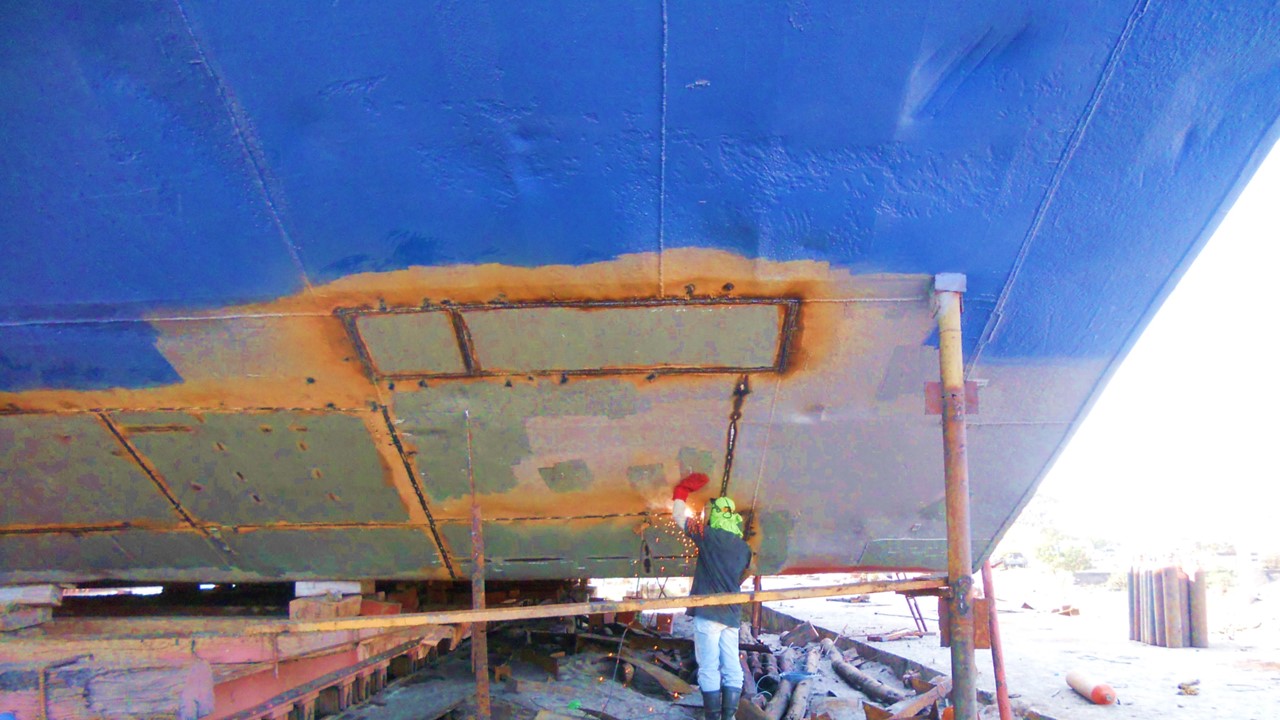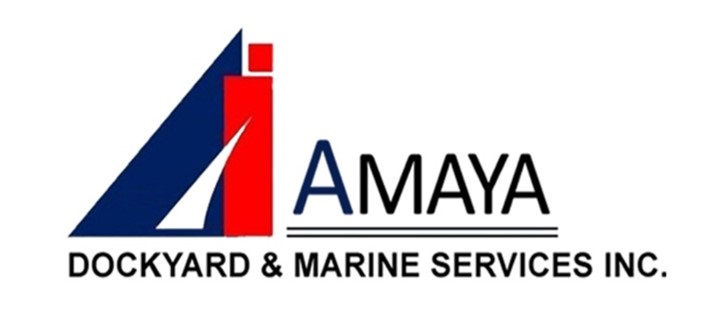Ship Conversion and Modification

Ship Conversion and Modification
Amaya Dockyard & Marine Services Inc. offers ship conversion and modification solutions in the Philippines to meet the evolving needs of our clients. With years of experience in the industry, we have developed expertise in converting and modifying various types of vessels, ranging from tugboats, deck barges, LCTs, and cargo ships to commercial yachts.
Our ship conversion services provide clients with the opportunity to transform their existing vessels into more efficient and versatile assets. Whether it’s retrofitting a vessel for a new purpose or upgrading its systems and components, our team of skilled Filipino engineers and technicians ensures that each conversion project is executed with precision and adherence to industry standards.
Furthermore, our ship modification services in Tanza, Cavite enable clients to enhance the capabilities of their vessels based on specific requirements. This can include installing advanced navigation systems, upgrading propulsion systems for improved fuel efficiency, or even extending the size or capacity of the vessel through structural modifications.
At Amaya Dockyard & Marine Services Inc., we understand that every ship has unique needs, which is why we offer comprehensive ship repair services in Luzon, Visayas, and Mindanao that encompass both conversion and modification options. Our dedicated team works closely with clients throughout the process to ensure that all modifications are tailored to their exact specifications while adhering to strict safety regulations. With our commitment to quality workmanship and customer satisfaction, Amaya Dockyard & Marine Services Inc. is your trusted partner for all your ship repair needs.
What is Ship Conversion and Modification?
Ship conversion in the Philippines involves transforming an existing vessel for a different purpose or function. This process may include modifying the ship’s structure, systems, or equipment to meet new requirements. For example, a cargo ship can be converted into a floating hotel or an offshore platform.
On the other hand, ship modification in the Philippines focuses on making alterations or improvements to an existing vessel without changing its overall purpose. This could involve upgrading the ship’s propulsion system, installing new navigation equipment, or enhancing safety features. The goal of ship modification is to optimize the performance and efficiency of the vessel while ensuring compliance with industry standards and regulations.
Amaya Dockyard & Marine Services Inc.‘s team of skilled Filipino engineers and technicians has extensive experience in both ship conversion and modification projects. We work closely with our clients to understand their specific needs and deliver customized solutions that meet their requirements effectively and efficiently. Whether it’s converting a commercial vessel into a research ship or modifying a cruise liner for enhanced comfort and luxury, ADMSI’s expertise ensures successful outcomes for every project undertaken.
Types of Ship Conversions: Passenger, Cargo, Offshore
One of the most common types is passenger ship conversion, which involves modifying cargo or offshore vessels to accommodate Filipino passengers. This may include adding cabins, recreational areas, dining facilities, and other amenities to ensure a comfortable and enjoyable experience for travelers.
Another type of ship conversion provided by ADMSI is cargo ship conversion. This typically involves transforming older cargo vessels into more specialized ships that are capable of carrying specific types of goods or materials. This may involve installing new equipment or modifying existing ones to meet the requirements of the intended cargo. ADMSI has extensive experience in handling cargo ship conversions and ensuring that they comply with industry standards and regulations.
Lastly, ADMSI also specializes in offshore ship conversions. Offshore vessels are used for various purposes, such as oil exploration and production support, diving operations, and offshore construction projects. These conversions often involve outfitting the vessel with advanced technology and specialized equipment to meet the demands of these challenging environments.
ADMSI offers comprehensive ship conversion services in the Philippines, catering to different needs such as passenger accommodations, specialized cargo transportation, and offshore operations. With their expertise in this field, clients can expect efficient and high-quality conversions that meet their specific requirements while adhering to safety standards.
The Importance of Ship Conversion and Modification
Ship conversion and modification play a crucial role in the Philippine maritime industry as it allows for the adaptation of existing ships to meet changing demands and requirements. Ship conversion in Luzon, Visayas, and Mindanao involves transforming a vessel’s purpose, such as converting a cargo ship into a passenger vessel or an offshore support vessel into an accommodation unit.
On the other hand, ship modification in the Philippines focuses on upgrading or improving specific aspects of a ship to enhance its performance, safety, or efficiency. This can range from installing new equipment and systems to optimizing the layout and design of the vessel. The importance of ship conversion and modification cannot be overstated, as it enables companies to extend the lifespan of their ships, increase their operational capabilities, comply with regulatory standards, and adapt to evolving market needs.
By offering comprehensive ship repair services in Metro Manila that encompass conversion and modification, ADMSI ensures that its clients can maximize the value and utility of their vessels while minimizing downtime. With skilled engineers and technicians who are experienced in handling complex projects, ADMSI delivers high-quality results that align with industry best practices. Whether it’s repurposing an old vessel for a new venture or enhancing the performance of existing ships, ship conversion and modification are vital processes that contribute to innovation and sustainability in the maritime sector.
Reasons for Ship Conversions: Economic, Environmental, Regulatory
There are several reasons why ship conversions are undertaken, with economic factors being one of the primary motivations. By converting a ship, companies can extend its lifespan and maximize its operational efficiency, saving on the costs associated with building a new vessel from scratch.
Additionally, environmental concerns play a significant role in driving ship conversions. As global regulations become more stringent regarding emissions and pollution control, converting ships to be more environmentally friendly is crucial for complying with these standards. Ship conversions can involve installing advanced technologies such as scrubbers, ballast water treatment systems or even switching to cleaner fuels like liquefied natural gas (LNG), reducing the overall environmental impact of maritime operations.
Furthermore, regulatory changes often prompt ship conversions. When new laws or industry guidelines are introduced, ships may need modifications to meet compliance requirements. For instance, if there are regulations related to safety equipment or structural integrity upgrades, ship owners will have to invest in necessary modifications to ensure their vessels adhere to these standards and remain legally compliant in various jurisdictions around the world.
Ship conversions in the Philippines offer numerous benefits, including cost savings through extending vessel lifespan and enhancing operational efficiency.
Challenges in Ship Conversion Projects: Engineering, Financial, and Time Constraints
One of the major challenges in ship conversion projects is the engineering aspect. Converting a ship requires careful planning and execution to ensure that all necessary modifications are made without compromising the integrity of the vessel. This can involve structural changes, installation of new equipment, and integration of various systems. Engineering challenges may arise due to the complexity of the project, as each ship has its unique design and specifications that need to be considered during conversion.
Another significant challenge in ship conversion projects is financial constraints. Converting a ship can be an expensive undertaking, requiring substantial investment in labor, materials, and equipment. Additionally, unexpected costs may arise during the project due to unforeseen issues or changes in requirements. Shipowners and operators must carefully manage their budgets to ensure that they have enough funds for all aspects of the conversion process.
Time constraints also pose a challenge in ship conversion projects. The time required for a successful conversion depends on various factors, such as the size of the vessel, scope of work, availability of resources, and project complexity. Delays in obtaining necessary permits or approvals can further impact timelines. Meeting deadlines becomes crucial as any delay can result in financial losses or disruptions to planned operations.
Ship conversion projects face numerous challenges related to engineering complexities, financial limitations, and time constraints. Successfully navigating these obstacles requires meticulous planning, effective resource management, and close collaboration among stakeholders involved in the project. That is why ship owners should choose the best ship conversion and modifications like Amaya Dockyard & Marine Services Inc. We are a renowned company in the industry, known for its expertise and experience in ship conversion projects. With a proven track record of delivering high-quality results within tight timelines, they have become the go-to choice for ship owners looking to modify their vessels.
One of the key reasons why Amaya Dockyard & Marine Services Inc. stands out from its competitors is our meticulous planning process. We understand that every ship conversion project in the Philippines is unique and requires a tailored approach. Our team of engineers and maritime experts starts by conducting a comprehensive analysis of the client’s needs and specifications. This includes assessing the current condition of the vessel, identifying any structural or mechanical issues, and understanding the desired outcome for the conversion.
Once all necessary data is gathered, our team collaborates closely with clients to develop a customized plan that meets their specific requirements. We take into account various factors such as budget, time frame, and regulatory compliance to ensure a successful ship conversion project. Our experienced engineers utilize advanced software and simulation tools to create detailed 3D models of the proposed modifications, allowing our clients to visualize the final result before any physical work begins.
During the planning process, we also consider environmental sustainability and energy efficiency. We explore innovative solutions, such as implementing green technologies or optimizing energy consumption to minimize the vessel’s carbon footprint.
Contact us today and find out:
- Email us: info@amayadockyard.com
- Call our 24-hour hotline: +63 917 633 0479
- Viber: +63 917 633 0479
- WhatsApp: +63 917 633 0479
- Facebook Messenger: Click here
- Click here to inquire
Check Out Our Ship Building
Amaya Dockyard & Marine Services Inc. (ADMSI) is revolutionizing the maritime industry in the Philippines with its commitment to building cost-effective and on-time delivery of various vessels, including LCTs, deck barges, pontoons, RoRo, and more. With a reputation for excellence and reliability, ADMSI has become a trusted name in the industry.
